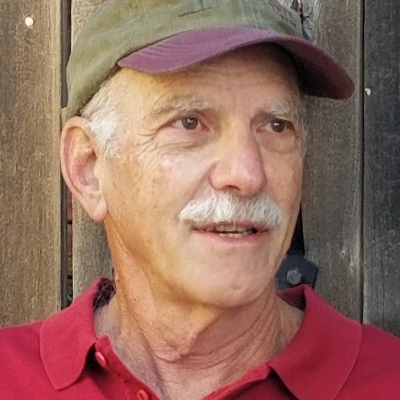What happens to a country and its people after 35 years of terror? The author of Poso Wells and Family Album explores the aftermath of a dictatorship in this gothic family saga.
After 19 years, a woman named Gabriela returns to the Paraguayan capital of Asunción to visit what’s left of a family and a home that once provided her with refuge. Andrei, the family patriarch, now deceased, has left her his journal. Gabriela sequesters herself in the library to slowly read through it. The unanswered, and sometimes forbidden questions haunting that home filled with memories are made palpable: What secrets must be kept in order to survive? And for how long?
Alemán situates the present in an eerie, dreamlike atmosphere saturated by a sense of foreboding. In alternating chapters, the past is revealed as an impossible puzzle, riddled with ellipses and gaps. As characters from the past begin to show up in the present, the novel comes to a close as Gabriela learns the family’s hidden story, set against the backdrop of the country’s troubled history.
***
While she waits, the woman observes the long, thin leaves stretching through the wrought iron fence in front of the house. Nothing else braves the rising tide of wind forcing its way into cracks, dragging its tongue along the pavement and grasping at the bare branches of three trees that stand like tortured skeletons along the sidewalk. There’s no one in the street, so empty it’s like she’s the only one who’s dared to defy a curfew. There’s just the sky, hanging like the belly of a she-donkey. She’s seen one, in the countryside when she was a girl and fought its foal for the udder. She recognizes the exact color, though she’s never known it to be painted on the sky of Asunción before. In a silk blouse and linen pants she’s unprepared for the weather. Only her hair, styled like she used to wear it twenty years ago, offers any shelter from the wind. She leans on a cane gripped in her right hand. There is a suitcase at her feet. She’s been pressing the doorbell next to the gate for several minutes. She tries to make out a silhouette through the windows of the house, but nothing moves except the curtains. While she’s searching for shadows, a chipa vendor approaches. Something must catch this peddler’s attention—the woman’s reddened arms, her bent posture, the fine line of blood dripping toward her lip—because she stops to say that the gate doesn’t lock, and to go in, climb the stairs and knock on the front door. Before she can react, the peddler (who’s looking at her like she’s some kind of imposter) begins to clap. Not one clap, but several—distinct, heavy, separated sounds made by enormous hands. Though the woman registers this, what’s stronger is the memory it conjures. That’s what unnerves her, the memory. Never since, in any other part of the world, has she encountered clapping employed as an improvised bell. She’s so rattled that she can’t manage to thank the chipa seller, who’s already setting off. Instead, she opens the gate, leaves her suitcase just inside, and walks up the wide staircase. Ivy still covers the walls of the house, two enormous palm trees continue to preside over the garden, and a variety of creeping yuyos still spread their leafy stems along the ground. The disorder holds sway in her memory. She knocks on the door, but nothing happens. Time passes, sweat soaks through the front of her blouse and her leg cramps up, so she sits down on the steps. She doesn’t try to find an open window, and wonders whether she made her arrival date clear. Leaning her back against a column, she remembers the kitchen door. She struggles to her feet with a shiver, the sweat cold on her chest, her bad leg dragging until she manages to straighten it, and goes down the stairs. She takes up the suitcase, dragging it through the damp weeds. She climbs the other steps, tries the knob, finds the door locked. When she runs her hand across her face, it comes away spotted with blood. She’s got nothing to clean herself up with, but that doesn’t bother her. Catching sight of the hem of her pants caked with mud, she tilts her head so the drops from her nose won’t fall on the doorsill and remembers that Andrei used to keep a spare key under the mat. It’s still there, coated in a thick, dark layer of mold. She pulls a nail file from her purse, cleans out the grooves and inserts the key into the lock. It fits. With an effort, she makes it turn.
Once inside, she can’t find the light switch, so she moves forward blindly, sliding her hand along the surface of the wall, leaving her suitcase by the door. In the empty room, her cane echoes like Ahab’s leg. She makes her way through the kitchen and into the living room before finally locating a switch. The curtains are closed. When the light comes on, she sees hundreds of dust specks floating in the air. Even after she tugs open the heavy red velvet drapes, light barely filters in. She steps into the open hallway alongside the inner courtyard, which doesn’t look at all like what she remembers. It’s covered with a thin layer of gray, like a coating of fine mesh. Piled next to the guayacan tree are cans of paint, brushes, and buckets of water. The big clock hanging on the wall is broken, stopped. She keeps going, opening the doors along the inner side of the hallway, one by one. In a small room, a thin girl stands looking out the window. The girl doesn’t even turn. The woman continues on, and three doors down she finds a group of men sitting around a table. They look at her as if she’s not there. But one of them, tall and heavyset, stands up, takes hold of her arm, and asks what she’s doing in the house. His tone is more disinterested than threatening, he gives off a pungent smell. She doesn’t tell him much, just says she’s looking for Pablo. The man points to a marble staircase, worn from long use, at the end of the hall. Without waiting, he goes back into the room and shuts the door behind him. The woman climbs the stairs, at each step raising first her right leg, then her left, and then her cane. When she reaches the top, she sees more closed doors facing the railing that overlooks the courtyard, all bathed in a pale light that filters through the clouds. She loses heart, but even so, she opens them one by one until she finds him at last.
He doesn’t raise his eyes from the table when she comes in.
“Pablo,” the woman says.
She takes a few steps, her cane echoing in the closed space. No response. The man is seated on a bench with his shirtsleeves rolled up, visibly concentrating. The woman moves forward until she’s standing right behind him. Only when she peers over his shoulder to watch him ply his chisel on a sheet of copper does the man notice her. He isn’t startled, just looks at her and pushes his bench backward.
“Gabriela.”
His tone offers nothing but a statement of fact. It’s a flat voice, like that of the man downstairs. Pablo picks up a rag and wipes his hands. His six-foot frame and the biceps that swell like hills under his sleeves are completely at odds with the fragility of his presence.
“Hi,” the woman says.
They acknowledge each other clumsily: he reaches out a hand, she brings her cheek toward his. Neither one finishes the gesture. Then comes a hiccup of silence, and then a rat-a-tat on the window that signals the first drops of a rainstorm.
“No baggage?”
“I left my suitcase downstairs, by the kitchen door.”
As these words leave her mouth, the man’s eyes take in her cane. He doesn’t comment.
“I’ll get it,” he says.
The rain is falling heavily now. The woman goes over to the window and sees how the drops are coming at a slant, sharp as needles. She shifts her attention, turns around and looks at the cords stretched across the room, from which sheets of cardstock hang. She studies one, where a corpse seems to take shape. A cloud of flies surrounds it. Pablo comes back.
“You must be tired.”
It’s not a question, nor does it suggest any special concern for her wellbeing. It’s just the transition to what’s coming next.
“Not so tired,” she answers, still distracted by the buzzing of the flies.
The man keeps moving, suitcase in hand, and signals for her to follow.
Translated by Dick Cluster
Smoke will be available in October 2025 from City Lights Books.



